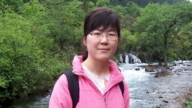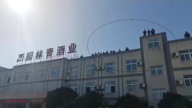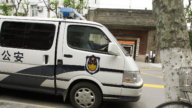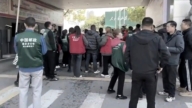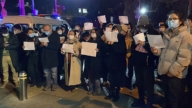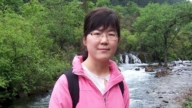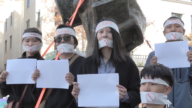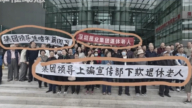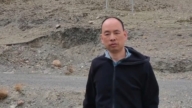【新唐人2012年1月28日讯】龙年开始,大陆多位异议人士被中共非法判刑,多位律师和维权人士遭传唤和抄家。中共的打压再次引起联合国的谴责。法国《解放报》撰文认为,龙年对中国异见人士很可能是个不祥的年头。不过,大陆异议人士表示,为了中国尽快走向民主,不会惧怕中共的任何不合法手段。
法国驻北京记者格兰日罗,日前在法国《解放报》撰发一篇文章,文章要求中共当局“停止惩罚以和平方式维护最基本的言论自由权利的维权人士”。
文章指出,中共司空见惯的做法——“被失踪”,有可能在今年3月份举行的中共人大会议上合法化。假设如此,中共警方将可以在不通知家属的情况下,随便关押认为应该关押的人六个月。
《解放报》引述人权组织“大赦国际”的观点认为,中共正在逐个惩罚民主活动人士,以起到“杀鸡给猴看”的作用。
浙江民主人士邹巍表示,作为中国的民主人士不会被中共的打压吓倒,反而会朝着民主方向走下去。
邹巍:“现在的打压比过去的打压实际上是基于一个权力的一种惯性,当我们面临着血腥和打压,没有必要恐惧,我们平常心对待。”
1月11号早上8点左右,邹巍被守候在他家附近的协警挡住,十多个国保和派出所警察冲进他的家中,抄走了邹巍的电脑等东西,随后邹巍被带到派出所审问,直到12号上午才被释放回家。
邹巍表示,要想推动中国尽快走向民主,在中国现有的环境下,先行者是要付出代价的,有的甚至要付出铁窗之苦。
国际组织“人权观察”22号发表的《全球年度报告(2012年)》也指出,2011年中国人权状况继续倒退。自2011年的2月以来,中共安全机构在未经任何法律保障措施或司法程序的情况下,逮捕了包括艾未未在内的几十位最直言不讳的异议人士,将之“失踪”几个星期。
报告还指出,在2011年的12月间,中共迫害了几位知名的维权人士,其中包括残障维权人士倪玉兰、贵州民运人士陈西、四川民运人士陈卫、以及维权律师高智晟等等。其中陈卫被判刑9年﹔陈西被判刑10年。两人因撰写文章而被中共以“颠覆国家政权罪”的罪名起诉。
邹巍:“掌握权力的人总是把权力尽可能的行使到它不能行使为止的边缘,实际上就是当局它自己也是不自信,充满恐惧的。”
“人权观察”中国部主任索菲•理查森对《美国之音》表示,导致中国人权状况在2011年倒退的主要原因是,中共对发生在中东地区的“阿拉伯之春”革命感到惶恐不安﹔另外一个重要的原因是2012年中共即将举行换届,中共害怕出现任何重大的社会动荡事件。
不过,理查森还表示,“人权观察”组织将会敦促欧巴马政府在中共副主席习近平2月份到访美国时,就人权问题向中共施压。
新唐人记者唐睿、李若琳采访报导。
French “Liberation" Condemns CCP’s Suppression of Dissidents
In the beginning of the Dragon year, many dissidents were arrested
and sentenced by the Chinese Communist Party (CCP) in China,
and many lawyers and activists were
summoned and raided by the CCP as well.
The suppression is condemned by the United Nations.
The French newspaper, “Liberation,” published an article
which statedthe year of the Dragon is likely to be an ominous year for Chinese dissidents.
But many Chinese dissidents said, to accelerate the Chinese
democracy process, they are not afraid of the CCP’s unlawful means.
Philippe Grangereau, the correspondent of “Liberation”
stationed in Beijing, published an article in France to ask the
CCP to “stop punishing the activists who use peaceful means
to maintain the most basic freedom of speech.”
The article points out that abduction, a common means
the CCP uses to suppress dissidents,
may be legalized during the National Congress in March.
If it is, CCP police will have the authority to arrest any person
for 6 months without giving the person’s family any notice.
“Liberation" quoted a viewpoint from “Amnesty International,"
a human rights organization,
as saying the CCP is punishing democracy activists one by one
in order to “warn others.”
Wei Zou, a Zhejiang democrat said, as a Chinese democrat,
he will not be intimidated by the suppression of CCP.
In contrast, he will go forward with democracy.
Zou Wei: “Actually, today’s suppression is based on a kind of
power’s inertia of the suppression in past.
When we are facing the bloody suppression, we don’t
need to fear. We should keep calm.”
At 8 am on January 11th, Zou Wei faced a dozen police
and security officers when he opened the door.
They broke into his home and grabbed his laptop and
other possessions.
Zou Wei was taken to the police office until the next morning.
Zou Wei said that under the current status, if people want to
push China towards democracy,
the pioneers need pay for something,
even pay for the pain behind bars.
The international organization “Human Rights Watch"
published the “annual global report (2012)” on January 22nd,
which points out that human rights in China continue to go
backwards.
Since February 2011, without any legal support or judicial
process, CCP security department arrested dozens of dissidents including Ai Weiwei.
Those dissidents had been missing for several weeks.
The report noted that in December 2011, the CCP persecuted
several well-known activists, including disability rights
activist Ni Yulan, Guizhou pro-democracy activist Chen Xi,
Sichuan pro-democracy activist Chen Wei, human rights lawyer Gao Zhisheng and more.
Chen Wei was sentenced to 9 years in prison and Chen Xi was
sentenced to 10.
Both of them were charged with “subversion of the state"
because they published articles.
Zou Wei:"(In China), the person in power always tries to use
the power as much as possible.
In fact, the authority doesn’t have self-confidence,
and is full of fear.”
Sophie Richardson, the Asia Advocacy Director of
Human Rights Watch told Voice of America that
the main reason China’s Human Rights went backward in 2011
is CCP felt anxious about the “Arab Spring” revolution which happened in the Middle East.
Another important reason is that the CCP will change the
leading group in 2012, and it is afraid of any major incidents in China.
However, Richardson said, “Human Rights Watch" will urge
the Obama administration
to press CCP on the human rights issue in February when
Xi Jinping, the vice chairman of CCP visits the U.S.
NTD Reporters: Tang Rui and Li Ruolin


